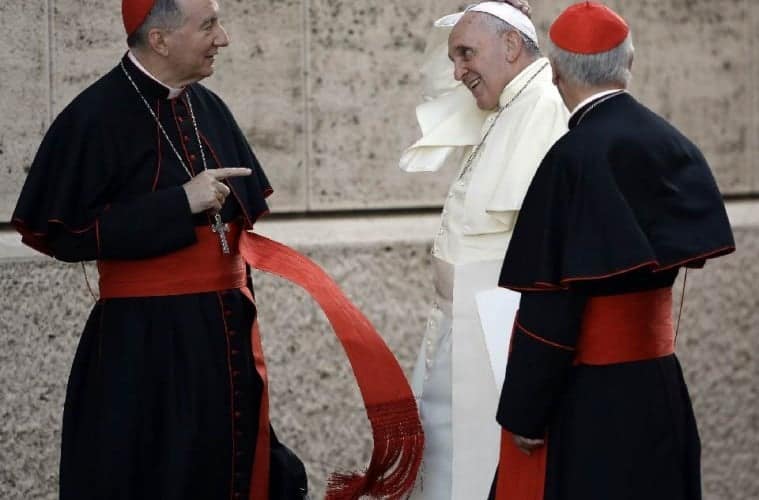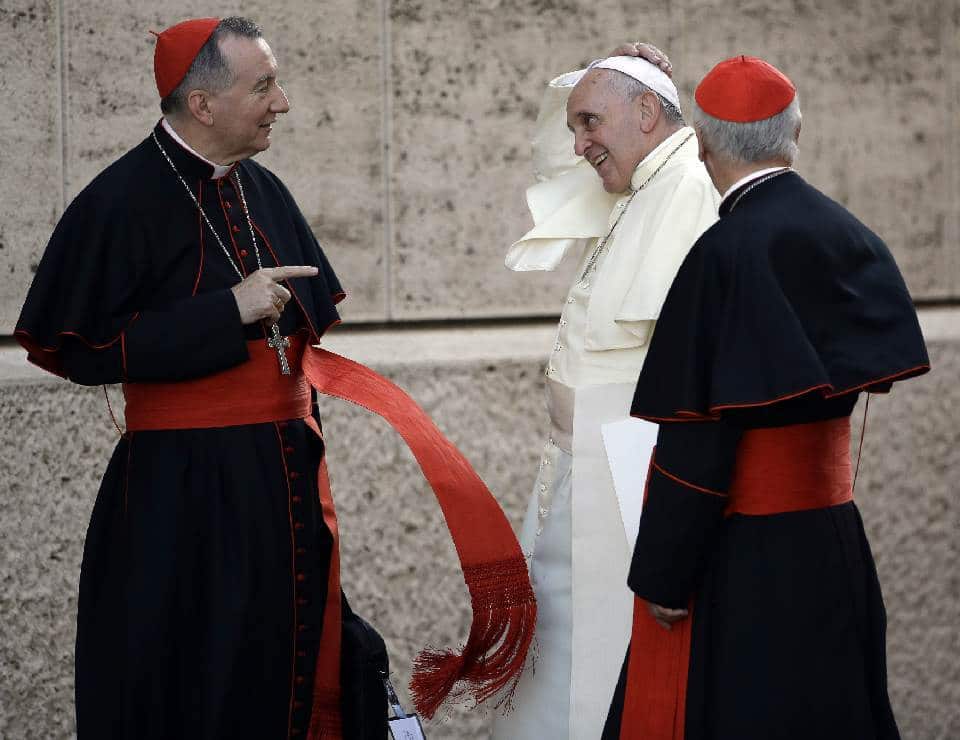In case you didn’t notice, for the past forty years, and especially under the oppressive pontificates of JPII and Benedict XVI, we’ve been living within the dank, bleak walls of a judgmental, moralizing and rule-obsessed church. Maybe you didn’t notice it. Maybe, like me, you missed it because you were too busy crooning “All Are Welcome” in English, Spanish, Vietnamese, Malayalam, Swahili, and Mandarin Chinese for the 100,000th time, or being welcomed by approximately 53 Greeters as you entered church, and holding clammy hands across aisles and pews during Mass. Maybe you missed it because you were mingling with fellow parishioners in the newly renovated Gathering Space in the back of the church, or because you were busy signing up to be involved with this or that “Ministry Team” at the parish. In-between those things, I guess we’ve had it pretty rough as Catholics these past few decades, not feeling welcome enough and all. Before Pope Francis you see, our leaders had really been making us squirm under the weight of oppressive teachings on how to live the good life. Sometimes, in-between many guilt-induced cold sweats, it was hard to sleep at night.
If you relied only on fatuous stories cranked out by the narrative-framing Associated Press, you’d probably think along these lines. Reporting on the Synod discussions at the Vatican, here you have, from the AP:
Bishops have referred frequently to the theological concept of the “law of gradualness,” which encourages the faithful to take one step at a time in the search for holiness.
It’s an age-old concept for the church, but it has been out of favor for the past two pontificates which focused on making clear church teaching on hot-button issues. Francis, though, has said that with doctrine now well-known, the church must now focus on being more welcoming and forgiving.
The “one step at a time in the search for holiness” approach was “out of favor for the past two pontificates”? What on earth are they talking about? When did either of the past two popes ever present a “snap-your-fingers-and-poof” plan for instant perfection, or fail to show compassion for anyone? Of course the journey toward sanctity is gradual! And this is supposed to be newsworthy?
Apart from the remarkably off-base assessment of the pontificates of JPII and Benedict XVI, there’s something else that deserves attention. The predictable media-inspired narrative of an enlightened Pope Francis emancipating the Church from the dark ages of the past three decades (and two popes) is embarrassing. That the Church and her leaders (according to secularists in the media) need to be more merciful and welcoming, as opposed to moralistic and judgmental, simply doesn’t resonate. Can anyone come up with a single high-profile example of any pope or other bishop being unduly moralistic, harsh and judgmental toward a particular person in the modern age? Of course not. No one is judging souls of individuals. And if he were, it would of course be sinful. (Heck, in the era of “All Are Welcome” liturgical schmaltz, I would actually welcome a little dose of “moralizing” for a change!) But that’s not the point. What this is about is, under the auspices of a new “tone” and being more compassionate and forgiving, a coordinated attempt to silence the moral voice of the Church when she speaks out on moral questions and actions. “Be nicer and, by the way, shut the hell up, or else.”
And what are we to make of the AP line (disingenuously linked to Francis) that reads, “while the doctrine is now well-known, the church must now focus on being more welcoming and forgiving”? This is basically a call for the Church to bifurcate, a call to shuck doctrine to the point of total irrelevance from the day-to-day life of Joe Catholic.
Doesn’t forgiveness imply some degree of repentance, or at least the recognition of an error committed? How can we talk about forgiveness if we don’t even broach the topic of something that requires forgiveness in the first place? If there’s no sin, what’s to forgive? How are we supposed to grow in holiness without recognizing sin and overcoming it? To secularists, forgiveness and a more “merciful” Church mean unequivocal acceptance of and capitulation to virtually every type of moral behavior.



